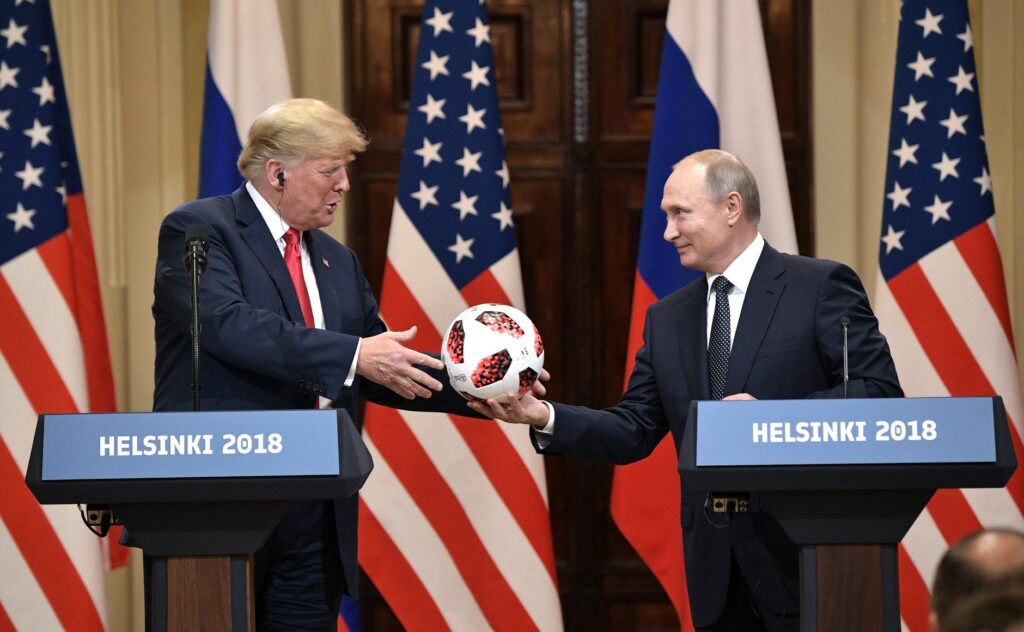Published in Ha'aretz.
The members of the new Trump administration despise liberal democracy and aspire to imitate Vladimir Putin’s governmental model.
Nitzan Horowitz
Everyone is eager to find an explanation for U.S. President-elect Donald Trump’s admiration for Russian President Vladimir Putin. It’s a very strange thing. Trump, as a Republican and a nationalist, should be opposed to Russia. That is the tradition in America – especially now, with Russia openly subverting American interests everywhere – and there is economic rivalry involved, as well.
So what’s going on here? This strange civil marriage is preoccupying foreign ministries and intelligence organizations all over the world, including in Israel. The issue really is troubling. Putin’s intervention in the presidential election in favor of Trump – the cyber attacks, the theft of information and the spreading of false reports – created a serious crisis between the administration of outgoing President Barack Obama and the Kremlin. A mass expulsion of Russian “diplomats” like that ordered by Obama last week hasn’t been seen for years.
Relations between the two great powers have returned to the Cold War era. The present administration considers Russia an enemy. But the leaders of this administration are going home in another two weeks. They will be replaced by the people appointed by Trump, who regards their good relations with Russia as being their main advantage, as in the case of Secretary of State-designate Rex Tillerson. It’s true that many people in the Republican Party are disgusted by the ingratiating behavior toward Russia, but, like everything connected to Trump, many others are toeing the line of the new leadership, which is moving in the direction of Russia.
It’s clear why Putin wanted Trump to win and was afraid of Hillary Clinton, who promised to set red lines and to increase the sanctions against him. But why is Trump toadying to Putin? There are as many theories as there are commentators. Some are hinting at hidden ties and interests between the Russian leadership and Trump and his associates. There are stories going around about money, and some people are even talking about a “mole,” in the style of such spy stories as “The Manchurian Candidate.”
Others think/hope that this whole business is just some kind of mistake: Trump got caught in an admiring slip of the tongue about Putin at the start of the campaign and, as with other such errors, instead of getting off the ledge he saw that the issue was arousing stormy reactions and continued. Trump climbed even higher, turning Putin into one of the symbols of his campaign – another example of taunting and defiance against the liberal administration.
But all those theories are simply attempts to evade the bitter truth that is right before our eyes. When one examines the ideological world of the new right in the United Sates and the people surrounding Trump, such as his senior adviser Steve Bannon, or General Michael Flynn, who was appointed to the key position of National Security Adviser, the conclusion is clear: These people despise liberal democracy and aspire to imitate Putin’s governmental model.
They see Putin as a strong leader, who is managing to crush the opposition, the media and culture by using ultranationalism, “traditional values” and religion. In that way, he is entrenching his political power at home and expanding his influence in the world – and all with very scanty resources. After all, Russia is an impoverished country.
Their admiration for Putin is a tool for promoting their sick objectives, and they aren’t the only ones. All over the world, and definitely in Israel, too, there are movements and leaders whose objective is Putinism. Bullying, defying political correctness, demonstrating disdain for international institutions, expressing nostalgia for the greatness of an imagined past, admiring force, attacking the media, despising minorities – Trump didn’t invent a thing. Putin was there long before him. The dark secret of his charm is an overt, boastful shattering of the democratic paradigm.
Anyone who fantasizes that the magic formula for strong government can be found in Moscow, and who longs for such bullying here as well, would do well to remember the economic and social price being paid by the citizens of Russian for their president’s lust for power – the fear of daring to tweet against the regime and the bodies of those slaughtered in the cities of Syria. Anyone whose democratic spine is crooked, as is Putin’s, considers human rights a sign of weakness and atrophy, but in the end he is the one who is left with the hunchback.

